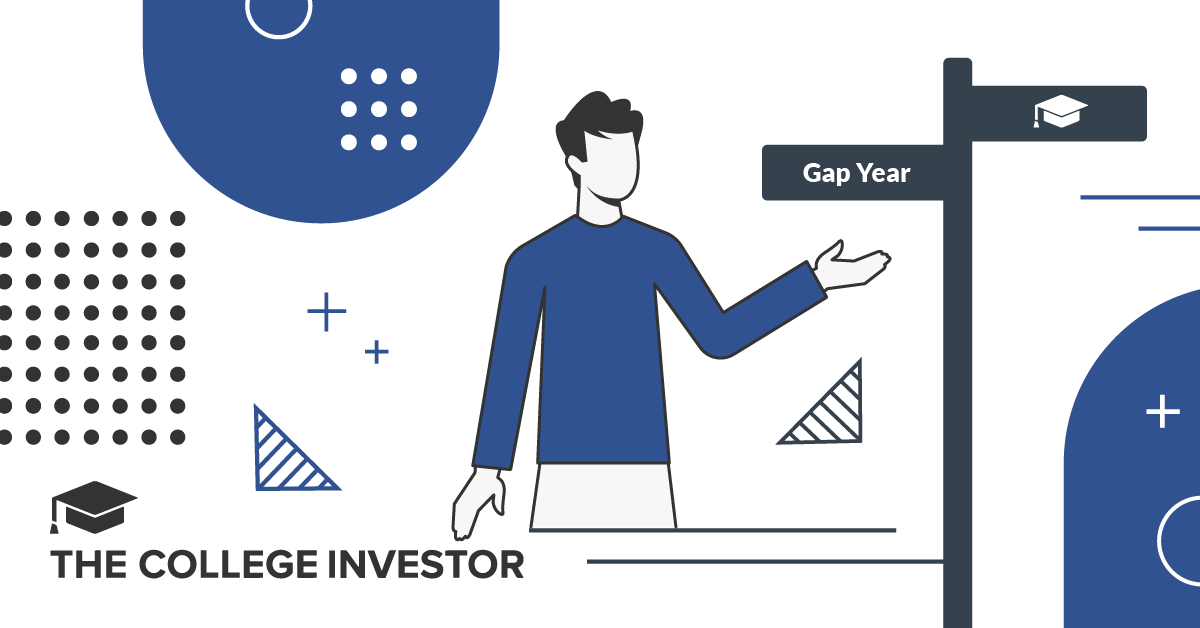
A “gap year” is a break between high school and college that allows young adults to explore and discover themselves and the world. It’s common in many parts of the world, except the United States.
As high school graduation approaches, you might find yourself at a crossroads. Should you take the conventional route and go straight to college, or have you been dreaming about taking a break from school to try something new?
Either option holds its value. While fewer than 5% of high school students in the U.S. choose to take a gap year before enrolling in college, the Gap Year Association reports that “students who had taken a gap year were more likely to graduate with higher grade point averages than observationally identical individuals who went straight to college.”
Let’s discuss some of the pros and cons of taking a gap year and identify some ways to help you take your next step, regardless of your decision.
What Does It Mean To Take A Gap Year?
A gap year is typically a one-year period between high school and college in which a student pursues other, non-academic interests. It’s meant to give students a break from the academic rigor of attending school day-in and day-out. Most students use the time to travel, learn new things or learn about themselves, work, or otherwise engage in an activity that brings them closer to knowing what they want to do next.
Taking a gap year isn’t a new concept. While many high school graduates in the U.S. opted for a gap year in the Covid-19 era, causing college enrollments to dip 2.5% lower than average in 2020, the idea of a gap year goes back as far as the 1960s.
For decades, people in the United Kingdom have viewed the gap year as a way for young people to gain practical experience and expand their perspectives before they start college. The idea is now catching on globally and adapting to different societal norms.
Top 10 Reasons Students Choose To Take A Gap Year
- Gain life experience
- Travel
- Take a break from academics
- Explore options for postsecondary education
- Volunteer
- Explore career options
- Learn another language
- Are encouraged to do so by parents or peers
- Gain work experience
- Are not admitted to college of choice
Advantages Of A Gap Year
The main goal of a gap year is to encourage students to get outside their comfort zones and expand their horizons in a way that isn’t directly tied to an academic environment.
Advocates of a gap year emphasize the many benefits an academic break can offer, such as making time to dive into your passions and build maturity through new outlets. Here are a few other advantages of taking a gap year.
Creating Opportunities For Personal Growth
Taking a gap year can lead to significant personal growth by distancing yourself from what’s familiar to you. This could mean something as simple as creating a new daily routine, or it could be as dramatic as moving to a country far from home.
Either way, this new independence will enhance your self-confidence and create a strong sense of responsibility. And, in the event that you move away from home, you’ll be forced to become more self-reliant and adaptable to change. These are all good qualities to build, ones that you’ll lean on heavily in your future career.
Finding New Academic Motivation
Ironically, taking a break from academics might just leave you feeling recharged and ready for college. Students tend to return from a gap year with a clearer understanding of their strengths and weaknesses and how to align those with their academic goals.
As a result of this renewed motivation, research shows that students who take a gap year are often more focused on their studies and perform better academically.
Elevating Your Future Career
Have you ever been told that you need experience to gain experience? A gap year can be the perfect time to kickstart your work experience and gain a competitive edge when you eventually enter the post-grad job market.
Internships, part-time jobs, and volunteer work allow you to develop valuable skills in interacting with others and meeting deadlines. Plus, these experiences can help clarify your career goals and expose you to various job titles in your industry of interest.
Gaining Global Perspective
Immersing yourself in a new culture and geography can be a personally transformative experience. If you have the opportunity to do so, I highly suggest leaning into it.
Being exposed to different languages, cultures, and norms builds social awareness and enhances your ability to empathize with others. Why? Trying, seeing, or doing something completely new to you challenges your assumptions and encourages a more open-minded approach to the world. Recognizing that people come from all kinds of socioeconomic, cultural, and racial backgrounds – and having patience for those who aren’t like you – is a truly invaluable skill to obtain in life.
Drawbacks Of A Gap Year
Now, you wouldn’t have a full picture of what a gap year is if we ignored some of the potential disadvantages. As you read through the following, remember that the goal here is not to deter you from taking a gap year.
Rather, it’s to present you with all the relevant information that will help you make the best decision for yourself.
Being Realistic With Expenses
Depending on how you spend your gap year, the costs can add up quickly, especially if you plan to travel. In fact, cost is one of the biggest barriers to taking a gap year. While traveling is a great way to spend this time, it’s a good idea to create a budget, and determine in advance what you plan to spend on travel, accommodation, and other activities.
On the flip side, there are ways to ensure you can cover your costs during this time. Certain organizations offer grants and scholarships for gap year students. And, if you choose to work during your gap year, your income can supplement funding provided by one of these programs.
Losing Academic Momentum
Another common discussion point is that you may risk losing your academic drive. A year away from the routine of formal education could be difficult to bounce back from. Plus – and I won’t lie – going back to school full time after making money for a year can be a stark reality check.
To combat this, you might consider continuing to engage in your education in some way, even if on a much less rigorous schedule. Taking an online class, learning a new language, or otherwise maintaining your intellectual competencies will help you ease back into the school year.
Facing Societal Pressures
In certain parts of the globe, taking a gap year is not considered the norm for recent high school graduates. Because of that, you may encounter uncomfortable social (and parental) norms to follow the traditional path to college. Your parents may especially fear that you could lose your motivation or direction.
If you find yourself in this position, it’s important to discuss your goals and plan for your gap year to demonstrate the value it’ll bring to you. Highlighting the benefits of a gap year and reminding others why this is what you need at this time can help them get on board with the idea.
Does A Gap Year Affect College Admission?
Lastly, if you’re wondering how a gap year might impact your chances of college admission the following year, I’m here to tell you that taking a gap year typically works in your favor. It mainly depends on how your year was structured and what you can speak to in your application packet.
As long as you meet the admissions requirements and can demonstrate your academic interests, having taken a gap year can actually amplify your application profile.
Choosing Your Next Step
Taking a gap year can completely transform your interests and goals, while reigniting your passion for learning. If you’re considering a gap year, start by weighing the pros and cons shared in this article, then ask yourself a few key questions about whether a gap year is right for you.
Ultimately, the decision comes down to your individual circumstances and goals. If you do decide to embark on a gap year, just be sure to thoroughly plan out how you’ll spend your time and what kind of budget will allow you to get the most out of this new experience.




